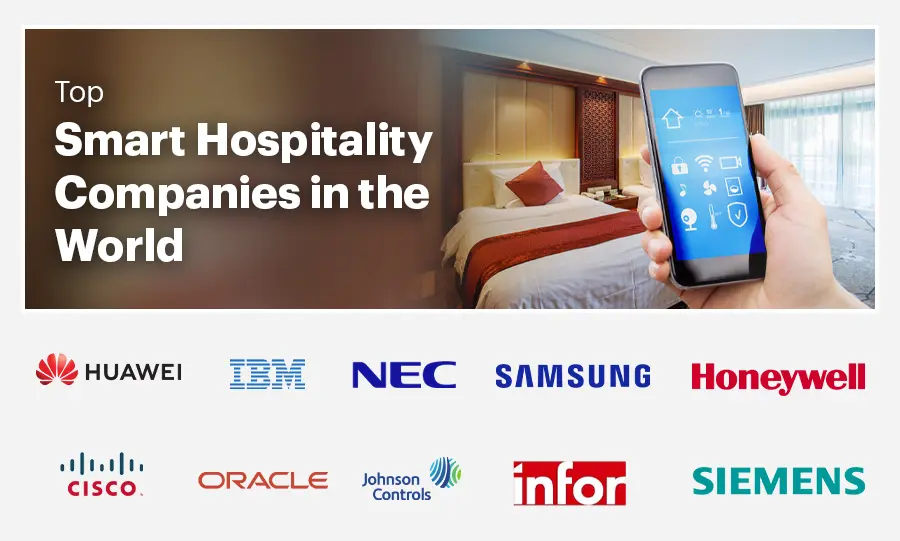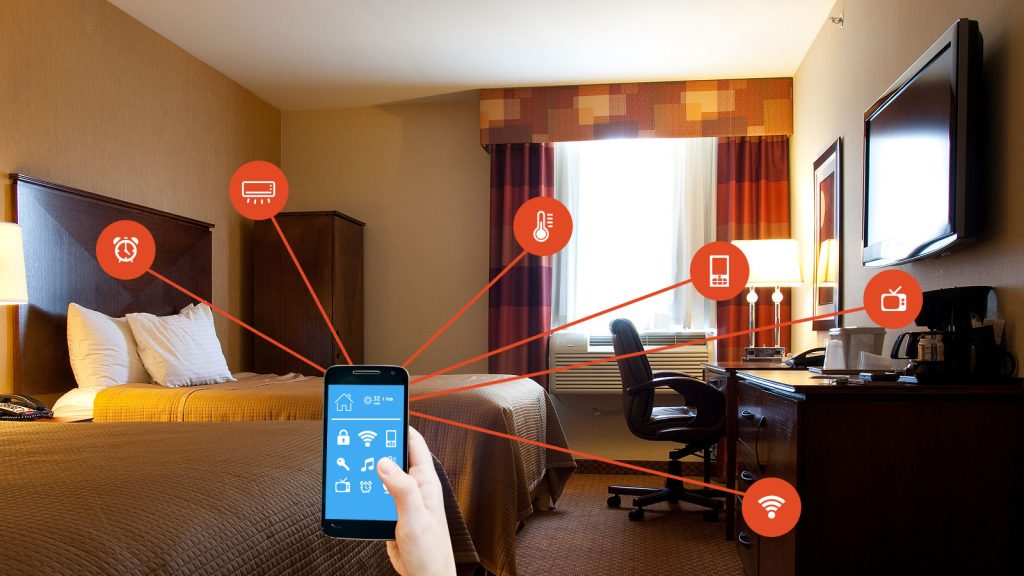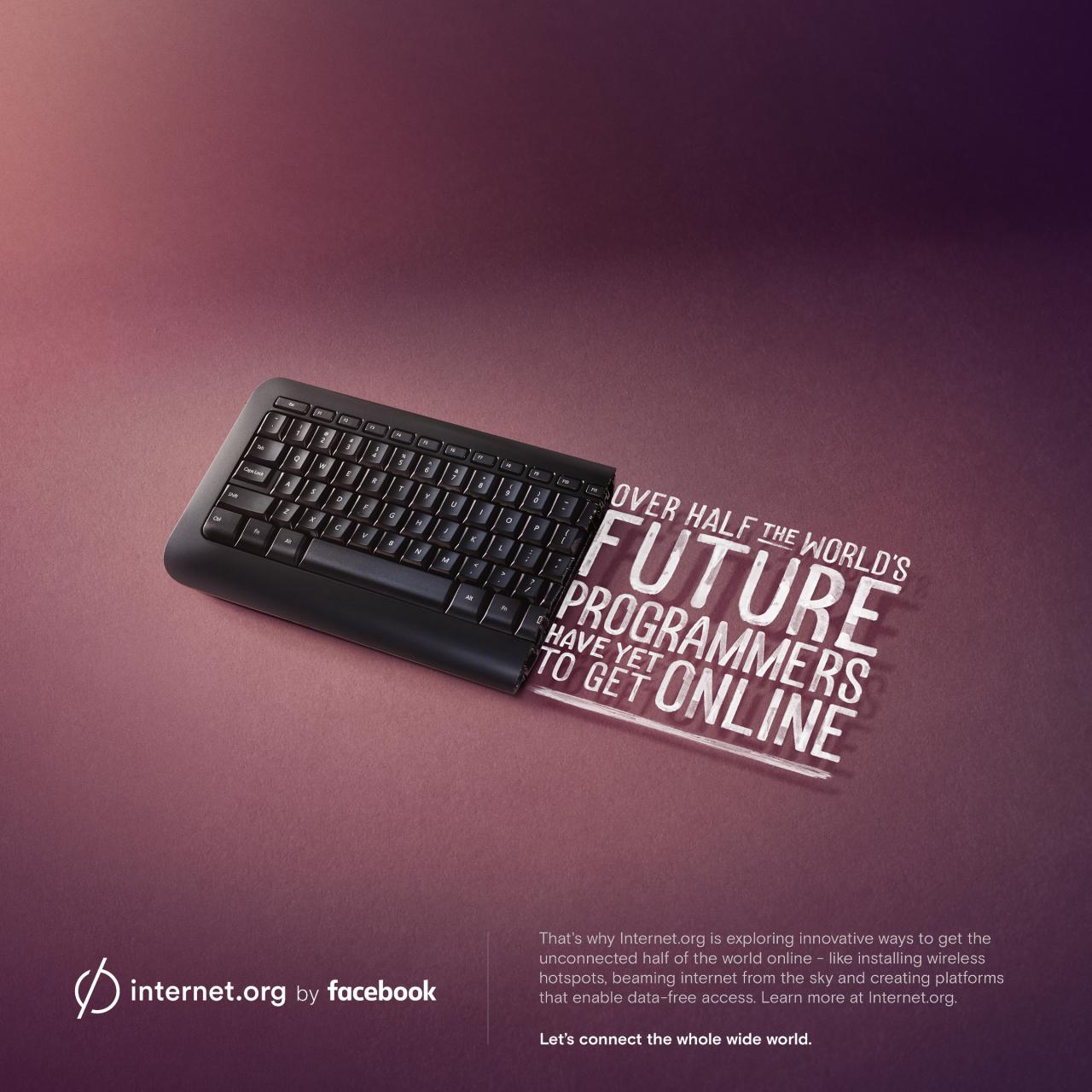Top Hospitality Technology Companies: Shaping the Future of Travel
Top hospitality technology companies are revolutionizing the way we travel and experience the world. From sleek property management systems to innovative guest engagement platforms, these companies are transforming the hospitality […]
Top hospitality technology companies are revolutionizing the way we travel and experience the world. From sleek property management systems to innovative guest engagement platforms, these companies are transforming the hospitality industry, enhancing guest experiences, and driving operational efficiency.
The hospitality technology landscape is constantly evolving, with new innovations emerging all the time. Artificial intelligence, the Internet of Things, blockchain, and cloud computing are just a few of the technologies that are reshaping the industry. These advancements are allowing hotels, restaurants, and other hospitality businesses to streamline operations, personalize guest experiences, and unlock new revenue streams.
Defining the Hospitality Technology Landscape

The hospitality industry has always been at the forefront of adopting new technologies to enhance guest experiences, streamline operations, and maximize revenue. From the introduction of the first hotel reservation systems in the 1970s to the rise of online travel agencies and mobile booking apps in the 21st century, technology has played a pivotal role in shaping the modern hospitality landscape.
Evolution of Hospitality Technology
The evolution of hospitality technology can be traced back to the early days of computing, when hotels began using mainframe computers to manage reservations and guest information. The introduction of personal computers in the 1980s led to the development of more user-friendly property management systems (PMS), which enabled hotels to automate tasks such as check-in, check-out, and billing.
The rise of the internet in the 1990s revolutionized the hospitality industry, making it easier for travelers to research and book accommodations online. The emergence of online travel agencies (OTAs) such as Expedia and Booking.com further transformed the way hotels interact with guests, providing them with a wider reach and access to a global audience.
The mobile revolution of the 2000s brought about a new wave of innovation in hospitality technology, with the introduction of mobile booking apps, guest messaging platforms, and contactless check-in solutions. Today, hospitality technology continues to evolve at a rapid pace, with the emergence of artificial intelligence (AI), big data analytics, and the Internet of Things (IoT) transforming the way hotels operate and interact with guests.
Impact of Technology on Guest Experiences
Technology has significantly improved the guest experience in numerous ways, offering personalized services, seamless interactions, and enhanced convenience.
- Personalized Guest Experiences: Hospitality technology allows hotels to gather data on guest preferences, such as room type, dining choices, and entertainment interests, enabling them to offer tailored experiences. For example, hotels can use guest data to personalize room amenities, send targeted marketing messages, and recommend activities based on guest interests.
- Seamless Guest Interactions: Technology has streamlined guest interactions by providing self-service options, such as online check-in, mobile key access, and virtual concierge services. This allows guests to manage their stay with ease and reduces the need for face-to-face interactions, improving efficiency and guest satisfaction.
- Enhanced Convenience: Hospitality technology offers guests greater convenience through mobile apps that allow them to access hotel services, order room service, book spa appointments, and control room temperature and lighting. This empowers guests to manage their stay with greater autonomy and flexibility.
Impact of Technology on Operational Efficiency
Technology has revolutionized hotel operations, automating tasks, streamlining processes, and improving efficiency.
- Automated Tasks: Hospitality technology automates tasks such as check-in, check-out, billing, and housekeeping, freeing up staff to focus on providing personalized guest service.
- Streamlined Processes: Technology enables hotels to manage inventory, track guest preferences, and optimize resource allocation, improving operational efficiency and reducing costs.
- Data-Driven Insights: Hospitality technology collects data on guest behavior, operational performance, and market trends, providing valuable insights that can be used to improve decision-making and enhance overall efficiency.
Impact of Technology on Revenue Generation
Technology has enabled hotels to increase revenue through various strategies, including personalized pricing, dynamic pricing, and targeted marketing.
- Personalized Pricing: Hospitality technology allows hotels to offer personalized pricing based on guest preferences, booking history, and market demand. This enables hotels to optimize revenue by charging guests what they are willing to pay.
- Dynamic Pricing: Revenue management systems (RMS) use algorithms to adjust prices in real-time based on factors such as occupancy rates, demand, and competitor pricing. This enables hotels to maximize revenue by optimizing pricing strategies.
- Targeted Marketing: Hospitality technology allows hotels to target specific guest segments with personalized marketing messages, increasing the likelihood of conversions and driving revenue.
Key Categories of Hospitality Technology
Hospitality technology encompasses a wide range of solutions that cater to different aspects of hotel operations and guest experiences. Some of the key categories include:
- Property Management Systems (PMS): PMS are software applications that manage all aspects of hotel operations, including reservations, guest profiles, check-in/check-out, billing, and housekeeping.
- Customer Relationship Management (CRM): CRM systems are used to manage guest interactions, track preferences, and personalize communications. They help hotels build stronger relationships with guests and enhance loyalty.
- Point of Sale (POS): POS systems are used to process transactions, manage inventory, and track sales data. They are essential for restaurants, bars, and other food and beverage outlets in hotels.
- Revenue Management Systems (RMS): RMS are software applications that use algorithms to optimize pricing and inventory management, maximizing revenue and profitability.
- Guest Engagement Platforms: Guest engagement platforms provide a variety of tools to enhance guest experiences, such as mobile apps, digital signage, and social media integration.
Identifying Top Hospitality Technology Companies
The hospitality industry is rapidly adopting technology to improve guest experiences, streamline operations, and enhance profitability. A diverse range of companies offer innovative solutions across various segments of the industry, from property management systems to guest engagement platforms. This section will delve into prominent hospitality technology companies, their unique selling propositions, and notable client examples.
Prominent Hospitality Technology Companies, Top hospitality technology companies
The following table highlights key players in the hospitality technology landscape, categorized by their specialization:
| Company Name | Speciality | Key Features | Notable Clients |
|---|---|---|---|
| Oracle Hospitality | Property Management Systems (PMS) | Comprehensive PMS, guest management, revenue optimization, and reporting tools. | Marriott International, Hilton Worldwide, Hyatt Hotels |
| Opera PMS | Property Management Systems (PMS) | Cloud-based PMS, integrated with other hospitality solutions, mobile check-in/out, and guest engagement features. | The Ritz-Carlton, Four Seasons Hotels and Resorts, Mandarin Oriental |
| Shiftsmart | Staff Scheduling & Management | Automated scheduling, time and attendance tracking, communication tools, and employee self-service features. | The Cheesecake Factory, Chipotle Mexican Grill, Shake Shack |
| Toast | Point of Sale (POS) & Restaurant Management | POS system, online ordering, table management, inventory control, and reporting tools. | Starbucks, McDonald’s, Domino’s Pizza |
| Guestline | Property Management Systems (PMS) | Cloud-based PMS, channel management, revenue management, and guest relationship management (CRM) features. | Best Western Hotels & Resorts, InterContinental Hotels Group, Radisson Hotel Group |
| Mews Systems | Property Management Systems (PMS) | Modern, cloud-based PMS, mobile-first design, integrations with other hospitality solutions, and guest-centric features. | citizenM Hotels, The Hoxton, The Standard Hotels |
| Amadeus | Distribution & Technology Solutions | Global distribution systems (GDS), hotel management solutions, revenue optimization tools, and customer engagement platforms. | Expedia Group, Booking Holdings, Travelport |
| Sabre Corporation | Travel Technology Solutions | Airline and hotel distribution systems, revenue management solutions, and customer relationship management (CRM) tools. | Delta Air Lines, Southwest Airlines, United Airlines |
| TripAdvisor | Travel Reviews & Booking Platform | Online travel reviews, booking platform, and business management tools for hospitality businesses. | Hotels, restaurants, attractions, and other tourism businesses worldwide. |
| Expedia Group | Online Travel Agency (OTA) | Global online travel agency, hotel booking platform, and travel technology solutions. | Hotels, airlines, car rental companies, and other travel providers worldwide. |
Unique Selling Propositions and Competitive Advantages
Each hospitality technology company differentiates itself through unique features and capabilities, targeting specific needs within the industry. For instance, Oracle Hospitality focuses on comprehensive PMS solutions for large hotel chains, while Shiftsmart caters to staffing challenges in restaurants and other hospitality businesses. Mews Systems stands out with its modern, cloud-based PMS, designed for independent hotels and boutique properties.
Successful Implementations
Several hospitality technology companies have successfully implemented their solutions in various businesses. Oracle Hospitality’s PMS is used by major hotel chains like Marriott International, Hilton Worldwide, and Hyatt Hotels, enabling them to manage guest experiences, optimize revenue, and improve operational efficiency. Toast’s POS system has been adopted by numerous restaurants, including Starbucks, McDonald’s, and Domino’s Pizza, facilitating online ordering, table management, and inventory control.
Analyzing Industry Trends and Innovations
The hospitality industry is constantly evolving, driven by technological advancements that are transforming guest experiences and operational efficiencies. Emerging trends, such as artificial intelligence (AI), Internet of Things (IoT), blockchain, and cloud computing, are playing a pivotal role in shaping the future of hospitality.
Artificial Intelligence (AI)
AI is revolutionizing hospitality by automating tasks, personalizing guest experiences, and optimizing operations. AI-powered chatbots, for instance, can handle guest inquiries, provide recommendations, and even assist with check-in and check-out processes. AI algorithms can analyze guest data to personalize room recommendations, dining suggestions, and entertainment options.
Internet of Things (IoT)
The IoT is connecting devices and systems within hotels, enabling real-time data collection and automated control. Smart thermostats, lighting systems, and room access systems can be controlled remotely, optimizing energy consumption and enhancing guest comfort. IoT-enabled sensors can monitor guest room occupancy, identify maintenance needs, and even track the movement of guests within the hotel.
Blockchain
Blockchain technology offers a secure and transparent platform for managing guest data, streamlining payment processes, and enhancing loyalty programs. Blockchain-based systems can ensure the authenticity of guest information, protect against fraud, and provide a secure platform for storing and managing guest data.
Cloud Computing
Cloud computing enables hotels to access and manage data, applications, and services remotely. Cloud-based platforms provide scalability, flexibility, and cost-effectiveness, allowing hotels to adapt to changing business needs and scale their operations efficiently. Cloud-based property management systems (PMS), for example, can centralize operations, automate tasks, and improve communication between departments.
Exploring Future Directions in Hospitality Technology: Top Hospitality Technology Companies
The hospitality industry is constantly evolving, driven by technological advancements that are transforming guest experiences and business operations. As we look towards the future, a wave of innovative technologies is poised to reshape the landscape of hospitality, creating a more personalized, seamless, and efficient experience for both guests and operators.
Emerging Technologies and Their Impact
The future of hospitality technology is brimming with possibilities, driven by advancements in artificial intelligence (AI), Internet of Things (IoT), and other emerging technologies. These innovations will reshape guest experiences, streamline operations, and create new revenue streams.
- AI-Powered Personalization: AI will revolutionize guest experiences by providing personalized recommendations, tailored services, and anticipatory needs fulfillment. Imagine AI-powered chatbots that anticipate guest preferences, recommend dining options based on past choices, or even control room temperature and lighting based on individual comfort levels. This level of personalization will enhance guest satisfaction and loyalty.
- Hyper-Personalization Through Data Analytics: Data analytics will play a crucial role in understanding guest preferences and behaviors, allowing hotels to tailor services and experiences to individual needs. By analyzing guest data from various sources, hotels can create personalized offers, anticipate needs, and provide a more seamless and enjoyable experience. For example, a hotel could use data analytics to identify guests who frequently order room service and proactively offer them a special menu or early check-in option.
- The Rise of Smart Hotels: Smart hotels will leverage IoT technology to create interconnected ecosystems that optimize efficiency and enhance guest experiences. This includes smart rooms with automated lighting, temperature control, and entertainment systems. IoT-enabled devices can also monitor guest preferences and automatically adjust room settings accordingly. For example, a smart hotel could use sensors to detect when a guest is in the room and automatically turn on the lights and air conditioning.
- Virtual and Augmented Reality (VR/AR): VR and AR technologies are poised to transform guest experiences by offering immersive virtual tours, interactive room visualizations, and virtual reality-based entertainment options. Guests can explore destinations, experience hotel amenities, and even try on virtual outfits before their arrival, enhancing their pre-trip planning and creating a more engaging experience.
- Robotic Automation: Robots are increasingly being used in hospitality settings to automate tasks such as room service delivery, luggage handling, and guest check-in. Robotic automation can improve efficiency, reduce labor costs, and enhance guest experiences by providing 24/7 availability and consistent service.
Summary
The future of hospitality technology is bright, with exciting possibilities on the horizon. As technology continues to evolve, we can expect even more innovative solutions that will enhance guest experiences, optimize business operations, and redefine the way we travel. The companies at the forefront of this technological revolution are shaping the future of hospitality, creating a more connected, personalized, and seamless experience for travelers around the world.
The hospitality industry is undergoing a digital transformation, with top technology companies like Oracle, Salesforce, and Amadeus leading the way. This evolution is creating exciting opportunities for women in tech, and the elevate women in technology scholarship is a great way to support their journey.
As the industry continues to evolve, it’s crucial to encourage more women to join the ranks of these innovative companies and shape the future of hospitality technology.







